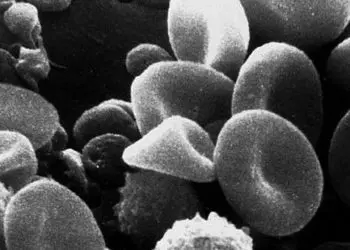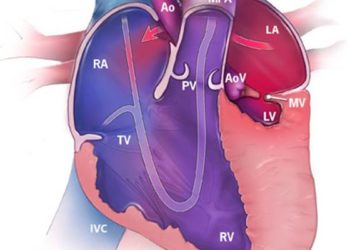[BMJ] Young women with BRCA1/2 mutations exposed to diagnostic radiation have higher risk of developing breast cancer
Image: PD. Chest x-ray.
Primer: We know that BRCA1/2 are involved in the repair of double-strand breaks. About one in 400 women have the mutation – more commonly in Eastern European and Jewish populations. Given the effect of ionizing radiation in causing DNA breaks and the predisposition of BRCA1/2 carriers towards development of breast cancer, it has been thought that patients harboring these mutations might be more sensitive to radiation than wild-type individuals. In fact, some countries advise using MRIs in place of mammograms for women <30 years old based on this logic, as MRI does not expose the patient to ionizing radiation. Previous studies on this topic have yielded inconsistent results, possibly due to lack of control of type of diagnostic radiation given, age differences, and study design. This study, just published in BMJ, sought to establish an estimate for the risk of breast cancer in BRCA1/2 carriers exposed to diagnostic radiation versus those unexposed.
This [retrospective] study:1993 participants carrying a pathogenic BRCA1 or BRCA2 mutation (18+ years old), were included, all from the GENE-RAD-RISK cohort. Patients completed questionnaires to assess their radiation exposure in diagnostic procedures (including X-rays and mammograms), after which the authors estimated cumulative breast dose in Gy units using parameters from the literature. 43% of the cohort had a diagnosis of breast cancer. Any exposure before age 30 in BRCA1/2 patients was associated with a 43% increased risk of breast cancer diagnosis (hazard ratio [HR] 1.9, confidence interval 1.20 to 3.00) compared to no exposure. This relationship displayed significant dose-response kinetics. This risk was amplified even further for subjects exposed before age 20. For a cumulative dose estimate of more than 0.0174 Gy there was a ~4x increased risk of breast cancer (HR 3.84, 1.67 to 8.79). There was no evidence of increased risk with exposures between the ages of 30-39, and though exposure to mammography alone showed a trend of increasing breast cancer risk if given in women <30, it did not reach significance.
In sum: Ionizing radiation (X-rays, mammograms) before the age of 30 are associated with higher risk of developing breast cancer in BRCA1/2 carriers. This was seen at lower doses than previously described. The authors cautiously estimate that if all BRCA1/2 carriers had a mammogram before age 30, the number developing breast cancer by age 40 would rise from the current estimate of 9 patients to 14 per 100 carriers. While women age 30+ and exposed were not associated with increased cancer risk – this analysis may have benefitted from longer follow-up. This has implications given the fact that most clinicians recommend begging in mammogram screening for carriers after age 30. However, the results should give pause to clinicians when ordering diagnostic test exposing carriers to radiation (CT, X-ray, mammogram, etc.). The authors suggest that any non-essential ionizing radiation should be withheld in these patients. As a retrospective study based on questionnaires – one must always consider recall bias in estimating the cumulative radiation doses, as well as variations in equipment parameters.
Click to read the study in the latest issue of the British Medical Journal [BMJ]
© 2012 2minutemedicine.com. All rights reserved. No works may be republished or reproduced without written consent obtained from 2minutemedicine.com.






